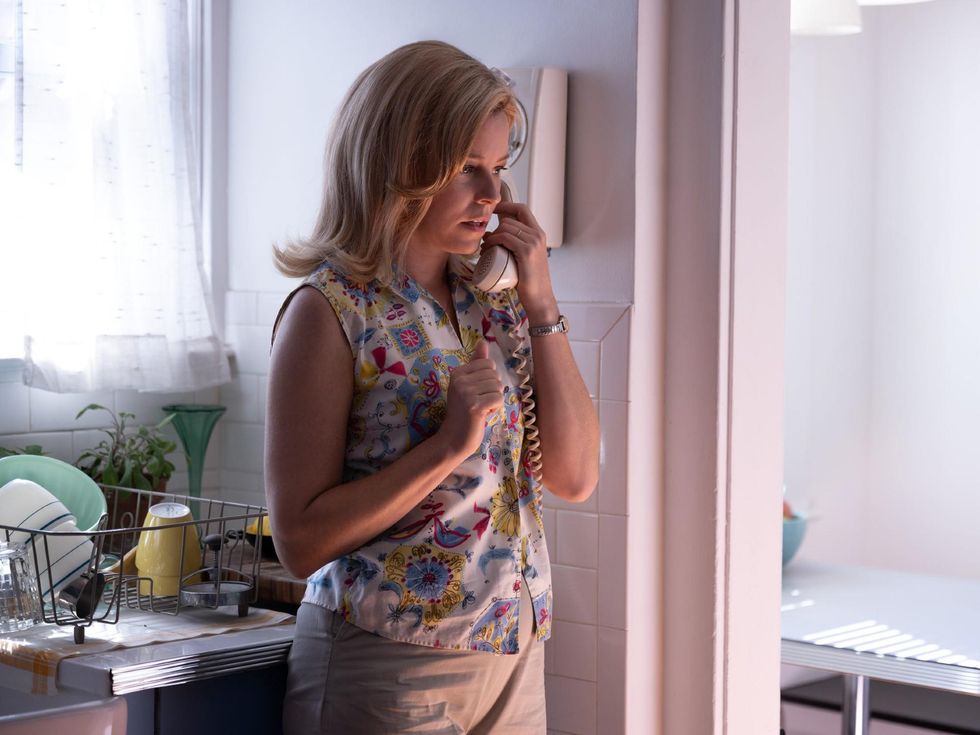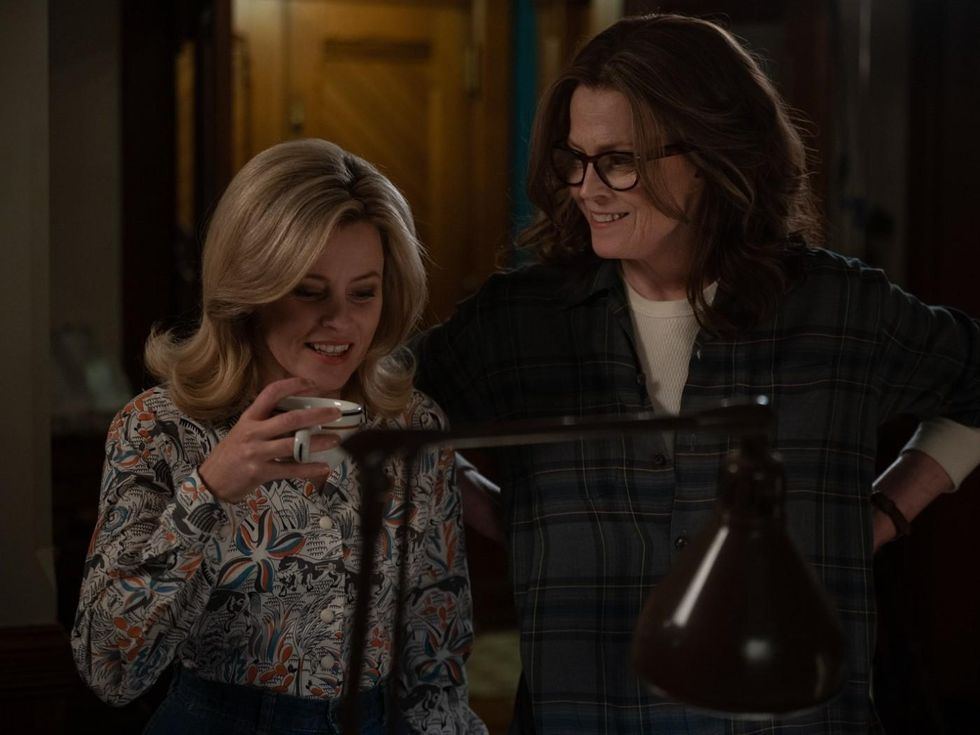Real-world events make the message of Call Jane all the more relevant
The overturning of Roe v. Wade by the Supreme Court has sent shockwaves through much of American society, including Hollywood. For years since the initial 1973 decision legalizing abortion, the issue has remained a part of many stories in movies and on TV, especially as conservative states started to enact more and more restrictions on when and where a woman could get the procedure.
When the cast and crew of Call Jane started making their film in 2021, they likely thought they were just showing an interesting chapter in history and underscoring the importance of a woman’s right to choose. Instead, they find themselves inadvertently smack dab in the renewed debate over abortion, and perhaps demonstrating that history is repeating itself.
The film is a fictional story about Joy (Elizabeth Banks), a middle-class woman in 1968 Chicago who has a husband, Will (Chris Messina), and a teenage daughter, Charlotte (Grace Edwards). She’s also pregnant, but she has a heart condition that necessitates terminating the pregnancy to save her life. When the (all-male) board at her local hospital denies her request for an emergency abortion, she starts searching out other options.
After being advised of a number of poor-to-terrible choices, she finds a flier with a message to “Call Jane” if you’re pregnant and anxious. That leads her to a relatively safe place to get the procedure done illegally, one organized by a group of activist women headed by Virginia (Sigourney Weaver). Soon, Joy finds herself drawn into being part of the group, a role that becomes increasingly larger the more she learns about the women who need its services.
Directed by Phyllis Nagy and written by Hayley Schore and Roshan Sethi, the film is a surface-level examination of the abortion issue, but still an effective one. The shocking initial choices Joy faces – convincing psychiatrists that she is suicidal or “accidentally” falling down a staircase to induce a miscarriage – are now ones that may be a reality again for many women, giving the film even more heft than it already had.
The film is at its best when Joy is with the organizing group, as it depicts a diverse group of women – including a nun! – who are all there for one purpose: To help other women. The group has its disagreements, like what type of women should get priority treatment, but the dedication as a whole to the larger cause has a hopeful vibe despite the obstacles they collectively face.
The story falters a bit when it focuses on Joy’s home life. She explains her time away from home as her taking art classes, an excuse that’s laughable given the hours she spends with the group. The filmmakers try to create drama with Will complaining about the lack of home-cooked meals, Charlotte always on the verge of discovering her mom’s secret, and their neighbor Lana (Kate Mara) paying a bit too much attention to Will, but none of it lands compared with the main story.
Banks has tended to be a comedic actor in her 20+ year career, so it takes a bit of time to accept her as the buttoned-down character she’s supposed to be. But once Joy joins the group, Banks’ performance blossoms, especially in scenes with Weaver. Weaver is a grounding force for the film as a whole, feeling exactly like the type of woman who could lead a rebel group like this.
Call Jane is not a firebrand of a film, likely because the filmmakers didn’t know it needed to be. But its release at this particular moment in time can still be interpreted as a call for those who believe in its message to not give up the fight, even if right now the world seems to be against them.
---
Call Jane opens in theaters on October 28.


